Vishrant Tripathi
Communication-Efficient Cooperative Localization: A Graph Neural Network Approach
Apr 10, 2025Abstract:Cooperative localization leverages noisy inter-node distance measurements and exchanged wireless messages to estimate node positions in a wireless network. In communication-constrained environments, however, transmitting large messages becomes problematic. In this paper, we propose an approach for communication-efficient cooperative localization that addresses two main challenges. First, cooperative localization often needs to be performed over wireless networks with loopy graph topologies. Second is the need for designing an algorithm that has low localization error while simultaneously requiring a much lower communication overhead. Existing methods fall short of addressing these two challenges concurrently. To achieve this, we propose a vector quantized message passing neural network (VQ-MPNN) for cooperative localization. Through end-to-end neural network training, VQ-MPNN enables the co-design of node localization and message compression. Specifically, VQ-MPNN treats prior node positions and distance measurements as node and edge features, respectively, which are encoded as node and edge states using a graph neural network. To find an efficient representation for the node state, we construct a vector quantized codebook for all node states such that instead of sending long messages, each node only needs to transmit a codeword index. Numerical evaluations demonstrates that our proposed VQ-MPNN approach can deliver localization errors that are similar to existing approaches while reducing the overall communication overhead by an order of magnitude.
WiSwarm: Age-of-Information-based Wireless Networking for Collaborative Teams of UAVs
Dec 06, 2022



Abstract:The Age-of-Information (AoI) metric has been widely studied in the theoretical communication networks and queuing systems literature. However, experimental evaluation of its applicability to complex real-world time-sensitive systems is largely lacking. In this work, we develop, implement, and evaluate an AoI-based application layer middleware that enables the customization of WiFi networks to the needs of time-sensitive applications. By controlling the storage and flow of information in the underlying WiFi network, our middleware can: (i) prevent packet collisions; (ii) discard stale packets that are no longer useful; and (iii) dynamically prioritize the transmission of the most relevant information. To demonstrate the benefits of our middleware, we implement a mobility tracking application using a swarm of UAVs communicating with a central controller via WiFi. Our experimental results show that, when compared to WiFi-UDP/WiFi-TCP, the middleware can improve information freshness by a factor of 109x/48x and tracking accuracy by a factor of 4x/6x, respectively. Most importantly, our results also show that the performance gains of our approach increase as the system scales and/or the traffic load increases.
Computation and Communication Co-Design for Real-Time Monitoring and Control in Multi-Agent Systems
Aug 09, 2021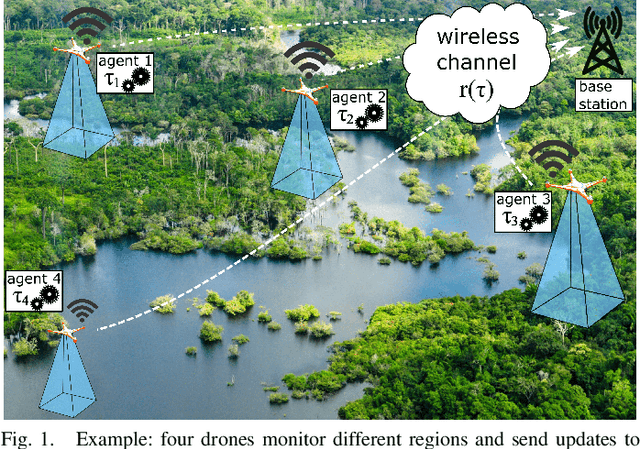
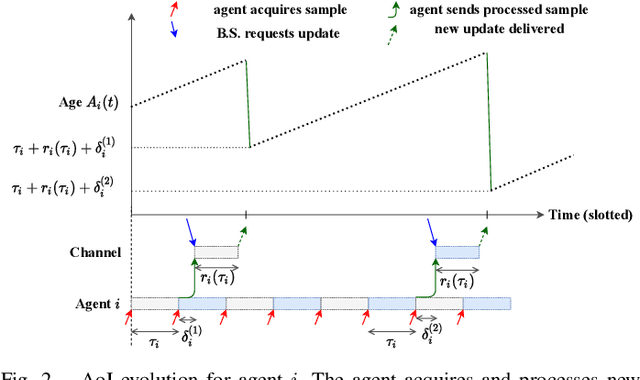
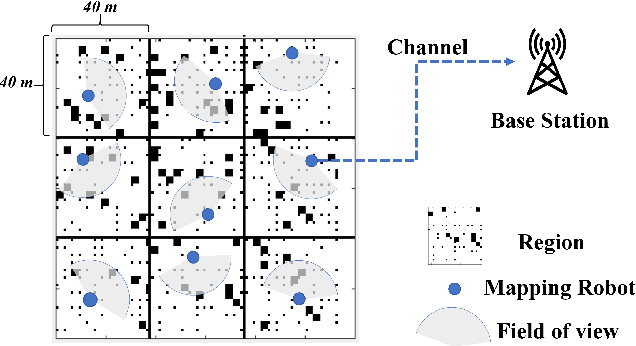
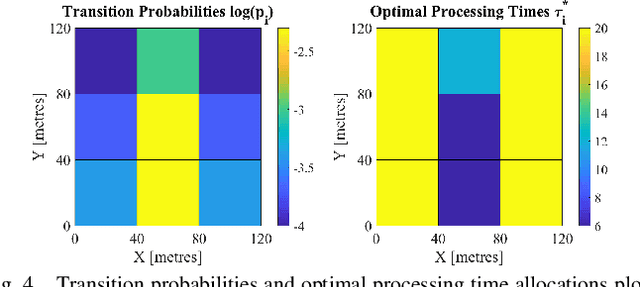
Abstract:We investigate the problem of co-designing computation and communication in a multi-agent system (e.g. a sensor network or a multi-robot team). We consider the realistic setting where each agent acquires sensor data and is capable of local processing before sending updates to a base station, which is in charge of making decisions or monitoring phenomena of interest in real time. Longer processing at an agent leads to more informative updates but also larger delays, giving rise to a delay-accuracy-tradeoff in choosing the right amount of local processing at each agent. We assume that the available communication resources are limited due to interference, bandwidth, and power constraints. Thus, a scheduling policy needs to be designed to suitably share the communication channel among the agents. To that end, we develop a general formulation to jointly optimize the local processing at the agents and the scheduling of transmissions. Our novel formulation leverages the notion of Age of Information to quantify the freshness of data and capture the delays caused by computation and communication. We develop efficient resource allocation algorithms using the Whittle index approach and demonstrate our proposed algorithms in two practical applications: multi-agent occupancy grid mapping in time-varying environments, and ride sharing in autonomous vehicle networks. Our experiments show that the proposed co-design approach leads to a substantial performance improvement (18-82% in our tests).
An Online Learning Approach to Optimizing Time-Varying Costs of AoI
May 27, 2021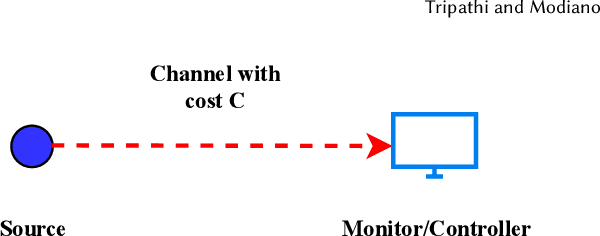
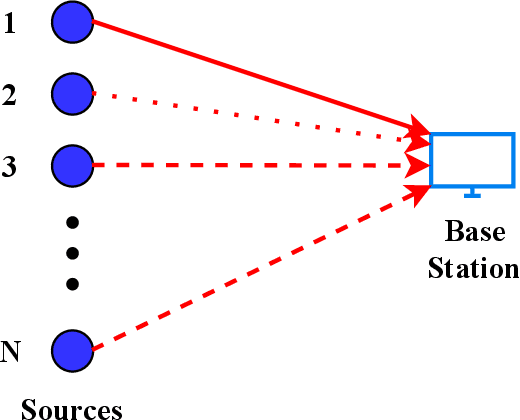
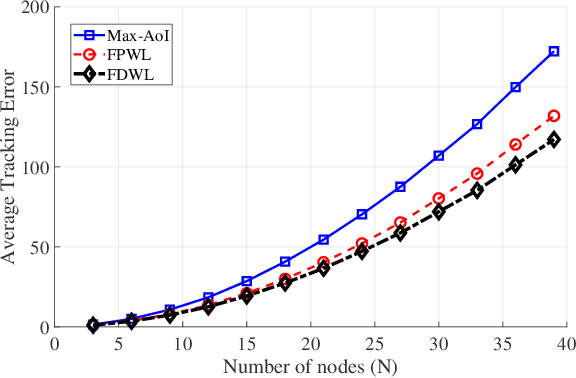
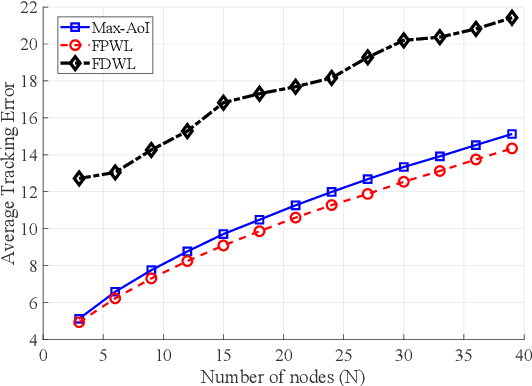
Abstract:We consider systems that require timely monitoring of sources over a communication network, where the cost of delayed information is unknown, time-varying and possibly adversarial. For the single source monitoring problem, we design algorithms that achieve sublinear regret compared to the best fixed policy in hindsight. For the multiple source scheduling problem, we design a new online learning algorithm called Follow-the-Perturbed-Whittle-Leader and show that it has low regret compared to the best fixed scheduling policy in hindsight, while remaining computationally feasible. The algorithm and its regret analysis are novel and of independent interest to the study of online restless multi-armed bandit problems. We further design algorithms that achieve sublinear regret compared to the best dynamic policy when the environment is slowly varying. Finally, we apply our algorithms to a mobility tracking problem. We consider non-stationary and adversarial mobility models and illustrate the performance benefit of using our online learning algorithms compared to an oblivious scheduling policy.
 Add to Chrome
Add to Chrome Add to Firefox
Add to Firefox Add to Edge
Add to Edge